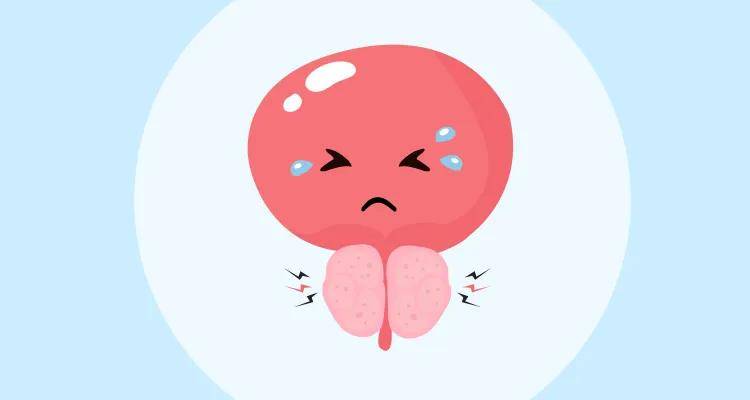Nowadays, an increasing number of men worry when their ultrasound during routine check-ups indicates calcification in the prostate, also known as “prostate calcification.”
In our clinic, many men come in with reports of “prostate calcification,” concerned about why calcification occurs in the prostate. What should they do if calcification is detected? Is treatment necessary?
PART 01: Why does prostate calcification occur?
Pathologically, calcification refers to the deposition of calcium salts in local tissues. Prostate calcification specifically refers to the deposition of calcium salts in the local tissue of the prostate.
It is generally believed that most cases of prostate calcification are caused by chronic prostatitis. Additionally, prostate hyperplasia, accumulation of prostate fluid, disturbances in calcium-phosphorus metabolism, and degenerative changes in prostate tissue may also lead to calcification.
Furthermore, prostate calcification is closely related to the following factors:
Age: As men age, their hormonal levels decrease and metabolism slows, leading to changes in the prostate.
Unhealthy lifestyle habits: Long-term urinary retention, excessive sexual activity, and irregular diet.
Infections: Bacterial infections, urinary tract infections, etc.
Other factors: Prolonged sitting, insufficient rest, among others.
PART 02: What are the effects of prostate calcification?
Prostate calcification itself is not a disease and generally does not have very obvious symptoms, but it may pose the following risks.
Development into prostate stones
If prostate calcification progresses to a certain extent, it can lead to the formation of prostate stones, so it is crucial to pay enough attention to prostate calcification and not let it progress unchecked.
Recurrent prostatitis
A calcified prostate is prone to harbor pathogens, and the substances formed from calcification may also create stones, allowing bacteria to accumulate in the surrounding urinary system. Once an infection occurs, it may lead to recurrent prostatitis.
In addition, severe cases may trigger complications such as seminal vesiculitis, orchitis, and epididymitis, which could also induce erectile dysfunction and premature ejaculation, thus affecting normal marital life.
It is also important to note that prostate calcification may lead to the presence of specific pathogenic bacteria in the prostate, such as fungi and trichomonas. Inflammation caused by these pathogens is infectious and may be transmitted to female partners during intercourse, leading them to develop related inflammatory conditions.
Struggling with conception
Stimulated by prostate calcification, the secretion function of the prostate may be affected. Changes in the composition of prostate fluid can lead to a decrease in sperm vitality, potentially causing male infertility.
PART 03: Is treatment necessary for prostate calcification?
For young men (under 45 years old), if there are no symptoms, regular follow-up is recommended. If symptoms such as frequent urgency, discomfort during urination, pain in the urethra, discharge from the urethra, or lower abdominal discomfort occur, it usually indicates prostatitis, and one should promptly visit a hospital for diagnosis and receive symptomatic treatment under the guidance of a specialist.
For middle-aged and older men (over 45 years old), even in the absence of symptoms, it is essential to seek medical attention for further testing of serum prostate-specific antigen (PSA), prostate ultrasound, etc., to rule out the possibility of prostate tumors. If prostate calcification is severe, or if it is associated with significant prostate hyperplasia, surgical removal of the lesions is generally necessary.
PART 04: How to prevent prostate calcification?
Men should develop good, regular lifestyle habits, avoid excessive fatigue, late nights, and urinary retention; eat more fresh vegetables, fruits, and whole grains; refrain from spicy foods and alcohol; drink plenty of water, and it is advisable to consume green tea and urinate frequently to aid in the elimination of prostate secretions; avoid prolonged sitting, engage in appropriate physical exercise to improve blood circulation; maintain proper hygiene, avoid wearing tight pants, and regularly wash underwear, airing them in a ventilated area; and avoid excessive sexual activity.
While prostate calcification is not terrifying, it often indicates tissue pathology. Therefore, men must take it seriously, focus on prevention before the onset of illness, and seek timely medical attention if symptoms arise to halt its progression and expansion early.


